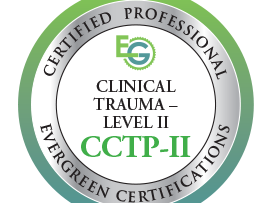Types of Trauma Therapy
What types of therapy are used for what types of trauma. PTSD and complex trauma are not treated the same way.
Forms of Therapy and Psychotherapy for PTSD and Complex Trauma
Welcome, and thank you for visiting Wellbeing Counselling.
My name is Stuart Morgan-Ayrs and I am a specialist certified clinican specialising in trauma and complex trauma. It is important to have a grasp of what kinds of therapy are used for both single event trauma, such as classic PTSD, and for the other main presentation of trauma: complex PTSD or complex trauma.
Here I will try to give an overall outline of what the differences are between single event and complex trauma, why they cause very different conditions, and why they need to be treated quite differently. Indeed it is inappropriate to treat complex trauma in the same way as single event PTSD.

I work with both single event and complex trauma, although I specialise in the latter.
Making the decision to seek support for trauma is a big step for most people. Often there is a sense of reluctance, sometimes even failure or shame seeking help. Please know that there is no failure, there is no blame on you for suffering from any of the forms of trauma. You are the one hurt, and you are someone who deserves to heal, recover, process and move forward.
HOW DOES THERAPY HELP?
There are two major kinds of trauma, and within them a series of sub types. Here I am going to lay out a simple, but I hope useful overview of the two main kinds, and why they need to be handled in different ways.
Single event trauma is often associated with classic PTSD (Post traumatic stress disorder), and has often historically been referred to in terms relating to grief or shock. A common version of this is battle stress, referring to a specific event where a service personnel member has been injured or witnessed an injury. These events are single events with a beginning, middle and end and are therefore often processed with any one of (or combination of) exposure therapy methods. These include, but are not limited to, EMDR, hypnosis based "visualisation processing", NLP trauma reframing, or simply talking through the event with a form of talking therapy. The emotion held in the event is the key element, and processing this, and coming to terms with the event is the main goal, either through grieving, or perhaps some form of reframing (changing the meaning).
Complex trauma is a different problem. Because it either occurs over a series of events, or a prolonged period of time, there is no distinct beginning, middle and end. Instead the various incidents and events combine to form interactions, themes, patterns and beliefs. Simple exposure therapy can actually make things worse, because sufferers of complex trauma have revisited the events over and over already, and subsequently suffered new repetitions. Exposure therapy can add to, and not diminish the effect. Complex trauma is usually best treated in three phases, and although there are a few different ways in which these phases are labelled, they are essentially 1 - Stabilise, 2 - deal with history using somatic and emotional processing, and 3 - moving on and rebuilding. Many different advanced schools come up with their own labels, meaning pretty much the same and reflecting this three stage model. The classic source is the work by Herman et al, also the NARM model.
Leading experts including Bessel Van De Kolk, Stephen Porges, Pat Ogden, Rothschild, Arizona Trauma Institute all agree that rushing into processing traumatic memory using hypnosis, EMDR or other methods UNTIL stage 1 stable self regulation has been achieved is dangerous, unethical and harms the client.
In the UK clinical guidance is produced by NICE: National Institute for Clinical Excellence. NICE make several important recommendations in relation to trauma, most importantly:
- The practitioner should have specialist training
- The practitioner should follow manualised treatment protocols (in other words evidence based methods like the three stage approach mentioned above)
- Trauma debriefing is prohibited as contra indicated
Recommended evidence based methods within the three stages vary but can include Narrative Based therapy, Cognitive reframing / restructuring, Psychoeducation, in vivo or prolonged exposure, but most importantly therapy should be carried out in a holistic way structured to the individual needs of the client, and as the NICE guidelines reflect, there can be a lot of co-morbid additional issues to tackle, making a customised approach around the stages important.
Complex PTSD or trauma has a long term effect, changing behaviours, eating habits, physical health, social behaviour, perceptions and pretty much influencing every area of your life. Thus these changes have to be addressed as part of the overall package of therapy. Therefore I have trained and been certified in a range of therapy models and methods so that I can address the bi directional effect of trauma on nutritional need, the effects on the need for movement and exercise, social interaction, psycho education, somatic processing, mindfulness and of course talking therapy itself.

People come to me for help a wide range of issues. Here are a few of the more common difficulties that can be supported through counselling:
Feelings of stress or anxiety
Panic attacks
Relationship problems
Grief, loss or bereavement
Problems with addiction
Trauma and post-traumatic stress
Abuse
Depression
Problems with confidence or self-esteem
Anger management
Issues relating to sexuality
Difficulties at work or in retirement
Problems with family or school life
SPEAK IN CONFIDENCE
Counselling takes place in a safe space, where you can meet with someone who will listen with sensitivity and empathy - and without judgement. In the therapy space thoughts and feelings can be expressed freely and in confidence.
Moving forward...
Trauma has an effect on so many areas of our lives. Not only does it cause various symptomatic diagnosis and conditions such as anxiety, sleep disruption and depression, as well as physical issues like IBS, hormonal, immunology and pain conditions, it also effects food absorption and nutritional needs, social interaction, identity and behaviours. Beyond all of these however, is the fact that it removes the potential of full quality of life until it is addressed fully.
The future, live post trauma recovery
Lots of books and articles will try to tell you that recovery from trauma is impossible, or only partial at best. This is usually because the incomplete approach has been applied. If the full, patient and integrative approach is applied, massive improvement is possible, to the point where the trauma is remembered, but no longer holds you back.
CONTACT ME
Feel free to contact me for a free information file describing the service in depth and providing links to terms and conditions, cancellation policy, data protection and so on. It also contains a full breakdown of fees for each income bracket.
If you read the information and wish to proceed, next complete the assessment forms, links at the end of the files. Your clinical assessment data will then be checked to see if the service is right for you. If all is OK, then you will be offered an initial assessment session, where the process of gathering a fuller picture will begin. I do not discuss cases on the phone, since without a proper assessment process this would be unprofessional speculation.
All enquires are usually answered within 24 hours, and all contact is strictly confidential and uses secure email services. Data, confidentiality and other policies are linked in the file provided.
MY LOCATION
I work from my own private clinic in the centre of Edinburgh. the clinic is on the Tram and rail routes as well as many major bus routes. Most sessions are face to face, although I do also provide virtual sessions.
FEES & AVAILABILITY
I am usually very busy and there may be a short waiting list for a session, but I will try to fit you in if possible. If I am too full, I will let you know as soon as possible so that you can consider alternatives.
The fees are linked to your income in order to be as fair as possible, and these are explained for your reference in the information file. Payment is by BACS, PayPal or cash (plastic notes and exact money only, you will be asked to place these in a UV sanitiser box due to COVID).
Some reasons to consider this service...
Many people who require support for complex trauma seek standard talking therapy, and indeed plenty of counsellors and psychologists provide some support. However many, although highly skilled and competent, only provide talking therapy. No doubt they help a great number of people START their journey, but we know from scientific research that trauma memory is held in both implicit and explicit memory, and that these require both talking based and somatic access to enable recovery. Also bidirectional effects (2 way) occur between nutrition and trauma, body and trauma and interpersonal relationships and trauma. Therefore a complete solution requires an awful lot more than just talking therapy such as counselling or CBT.
Unfortunately some therapists try to address complex PTSD as if it was single event PTSD and use exposure therapies like debrief and EMDR when this is not the best protocol and can worsen the experience, or only provide very brief relief.
Complex trauma requires a wide range of knowledge, as well as a high standard of knowledge, which is why I have completed additional specialist certifications and hundreds of hours of additional CPD training despite already having over 27 years professional experience.
FREQUENTLY ASKED QUESTIONS
Counselling is effective for light and new conditions involving things like transitional depression, dealing with life events and mild anxiety. Likewise CPD (cognitive behavioural therapy) is useful for dealing with short term anxiety and depression. Both are recognised in NICE guidelines as appropriate for these short term conditions. Both are characterised by time limited involvement varying between around 6 to 18 sessions depending on severity and condition.
Complex trauma is not a short term condition, and requires an integrative approach unhindered by time or single methods. It has to address multiple aspects of the client's life which will have been effected over many years if not decades.
Systematic patience is required for dealing with complex trauma. Because of the complex nature and the length of time the trauma and disruption will have lasted, the work will take as long as the client needs. This normally takes months into years. It is long term specialised and complex work.
I will let you know if there is going to be a delay so that you can look at alternative providers. I usually hope to offer an assessment session within two weeks. If all proceeds well, and both parties are happy that the service is a good fit and clinically suitable, then a regular weekly or fortnightly time slot will be agreed.
All healthcare practitioners have legal restrictions on confidentiality. If a person (or animal) is at risk of harm, or a police warrant or court order is produced, then confidentiality will have to be waived. Other than that confidentiality is very comprehensive.
No, because of COVID restrictions this is not possible. Normally a friend or family member is allowed to attend the first consultation for support, but not after that.
©2021 Stuart Morgan-Ayrs
Powered by WebHealer